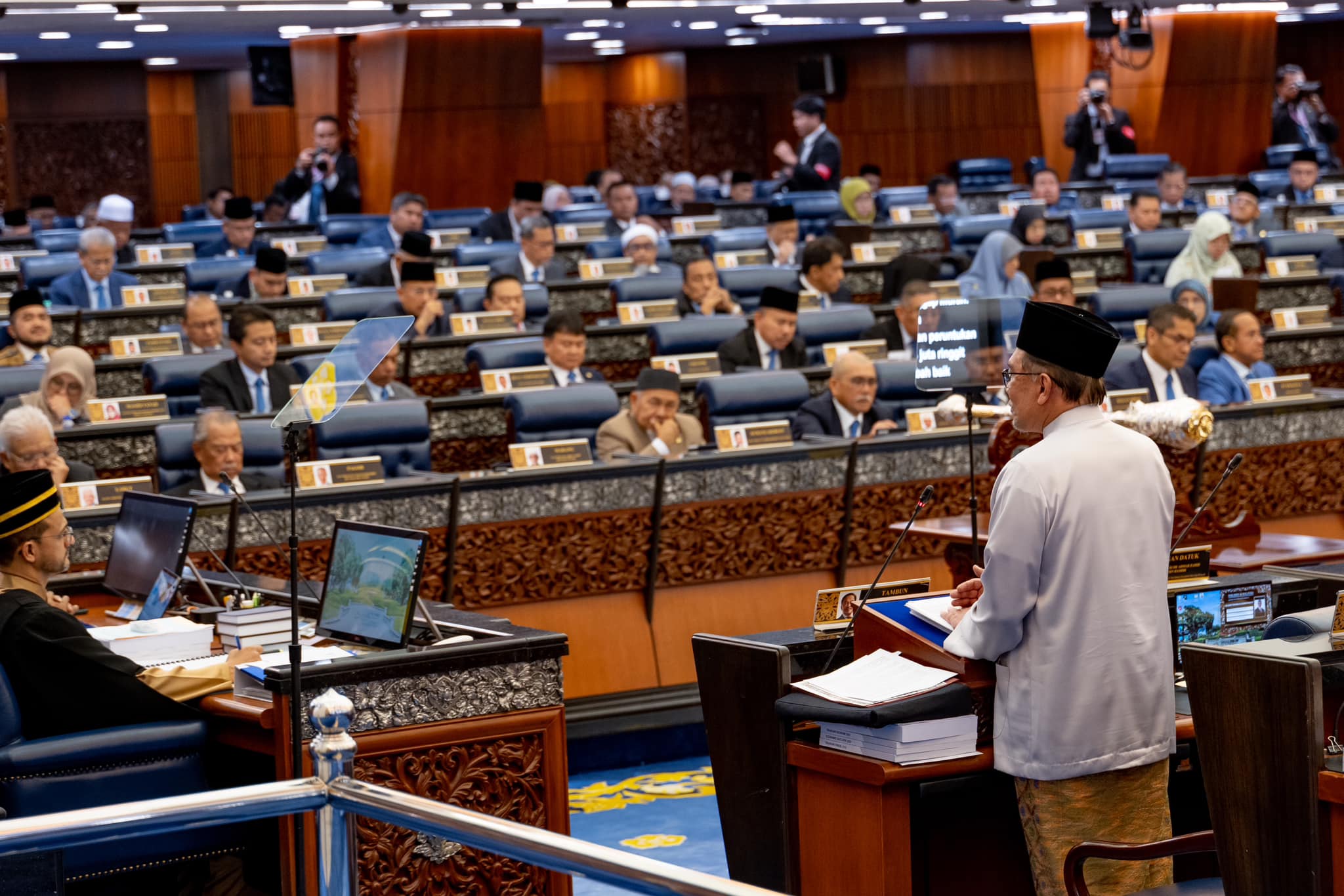KUALA LUMPUR Oct 24 - Malaysia's economic landscape is set for significant transformation as the government targets a robust growth rate of 4.5% to 5.5% in 2025, aiming to navigate global uncertainties while capitalizing on domestic strengths.
In an exclusive interview with DagangNews.com, Professor Geoffrey Williams, a distinguished economist and Director of Williams Business Consultancy, provides expert insights into these projections.
The professor was asked to share his views on the recently tabled Budget 2025, which was presented by Prime Minister Datuk Seri Anwar Ibrahim, who also serves as Finance Minister, in Parliament on Friday, October 18.
He discusses the growth targets, fiscal reforms, and key strategies needed to realize the nation's ambitious economic goals, offering a comprehensive analysis of the opportunities and challenges that lie ahead.

Optimistic Yet Achievable Growth Targets
The government's 2025 growth projection of 4.5% to 5.5% is optimistic but achievable," says Professor Williams. He acknowledges the global economic climate, characterized by uncertainties and slowdowns in major economies, but believes Malaysia's emphasis on domestic demand and strategic investments in sectors such as technology and renewable energy can drive the anticipated growth.
"However, achieving this will require robust policy implementation and resilience against external shocks," he adds
Reducing the Fiscal Deficit
The government's goal to reduce the fiscal deficit to 3.8% next year is a key priority. Professor Williams emphasizes the need for enhanced revenue collection through tax reforms, greater spending efficiency, and prudent management of public debt.
"The introduction of the Fiscal Responsibility Act and targeted subsidies are steps in the right direction," he notes.
However, he also highlights potential challenges, including ensuring compliance, managing public expectations, and addressing the impact of global economic fluctuations.
Impact of Infrastructure Investment
With RM120 billion allocated for infrastructure, the government aims to boost economic resilience and promote regional development.
Professor Williams views this investment as a catalyst for growth, stating, "It will enhance connectivity, support industrial expansion, and create jobs, thereby strengthening economic resilience.
"Over the long term, this investment is expected to diversify Malaysia's economic base, reduce regional disparities, and attract foreign investments, fostering sustainable growth.

Tax Reforms and Their Implications
The introduction of a 2% tax on dividends exceeding RM 100,000 and a more progressive Sales and Services Tax (SST) are notable changes in the budget.
Professor Williams explains that these reforms aim to boost government revenue without placing an excessive burden on the average citizen.
"High-net-worth individuals may experience a modest increase in their tax liabilities, but this is unlikely to deter significant investment," he notes.
For the broader economy, these measures could promote more equitable wealth distribution and provide the government with additional resources for public services and infrastructure investments.
Restructuring the RON95 Subsidy
The restructuring of the RON95 subsidy is expected to save RM 8 billion annually.
Professor Williams describes the move as bold and economically advantageous.
"It will free up significant resources that can be redirected toward critical sectors such as education and healthcare," he explains.
Socially, while the targeted subsidy approach aims to protect the most vulnerable, there could be short-term public resistance and inflationary pressures.
"Effective communication and gradual implementation will be key to managing these impacts," he advises.

Addressing Debt and Fiscal Deficit Concerns
While the budget aims to reduce the fiscal deficit to 3.8%, Professor Williams acknowledges the risks associated with this target.
"Achieving the 3.8% deficit ratio depends largely on whether the economy grows by 4.5% to 5.5%. Domestic growth drivers are strong, but the main downside risks come from global factors beyond the control of Malaysian policymakers," he explains.
Impact on Low-Income Groups
The restructuring of the RON95 subsidy and the introduction of a more progressive SST aim to protect low-income households.
"The RON95 subsidy rationalization is designed to benefit 85% of the population. While the implementation details remain to be seen, the experience with electricity pricing suggests that 85% of people will likely be unaffected," says Professor Williams.
He adds that the SST changes will primarily target luxury goods and imports, so the impact on most households will be minimal.
Tax Reforms and Investment Climate
Addressing concerns about the new 2% tax on dividends for high-net-worth individuals, Professor Williams reassures that the impact will be limited.
"There should not be a negative effect on investment or trigger capital flight," he asserts, emphasizing that the scope of the tax is designed to avoid discouraging investment.
Implementation Challenges
Regarding the potential challenges in implementing the infrastructure projects and other initiatives outlined in the budget, Professor Williams believes there are no significant obstacles beyond typical management and cost control issues.
"The projects are not megaprojects; they are standard infrastructure investments," he clarifies.

Economic Assumptions and Risks
The budget's projections rely on specific economic assumptions, and Professor Williams emphasizes the risks if these assumptions fail to hold. "The economic assumptions are influenced by both domestic and global factors. If growth is impacted by global conditions, it will affect revenue and the deficit target.
However, domestic factors are currently strong, providing a defense against uncertainty," he concludes.
Conclusion
Professor Geoffrey Williams' insights underscore the delicate balance Malaysia must maintain between ambitious economic targets and pragmatic policy measures.
As the nation navigates its economic future, strategic investments and fiscal reforms will be crucial for achieving sustainable growth and resilience. - DagangNews.com










